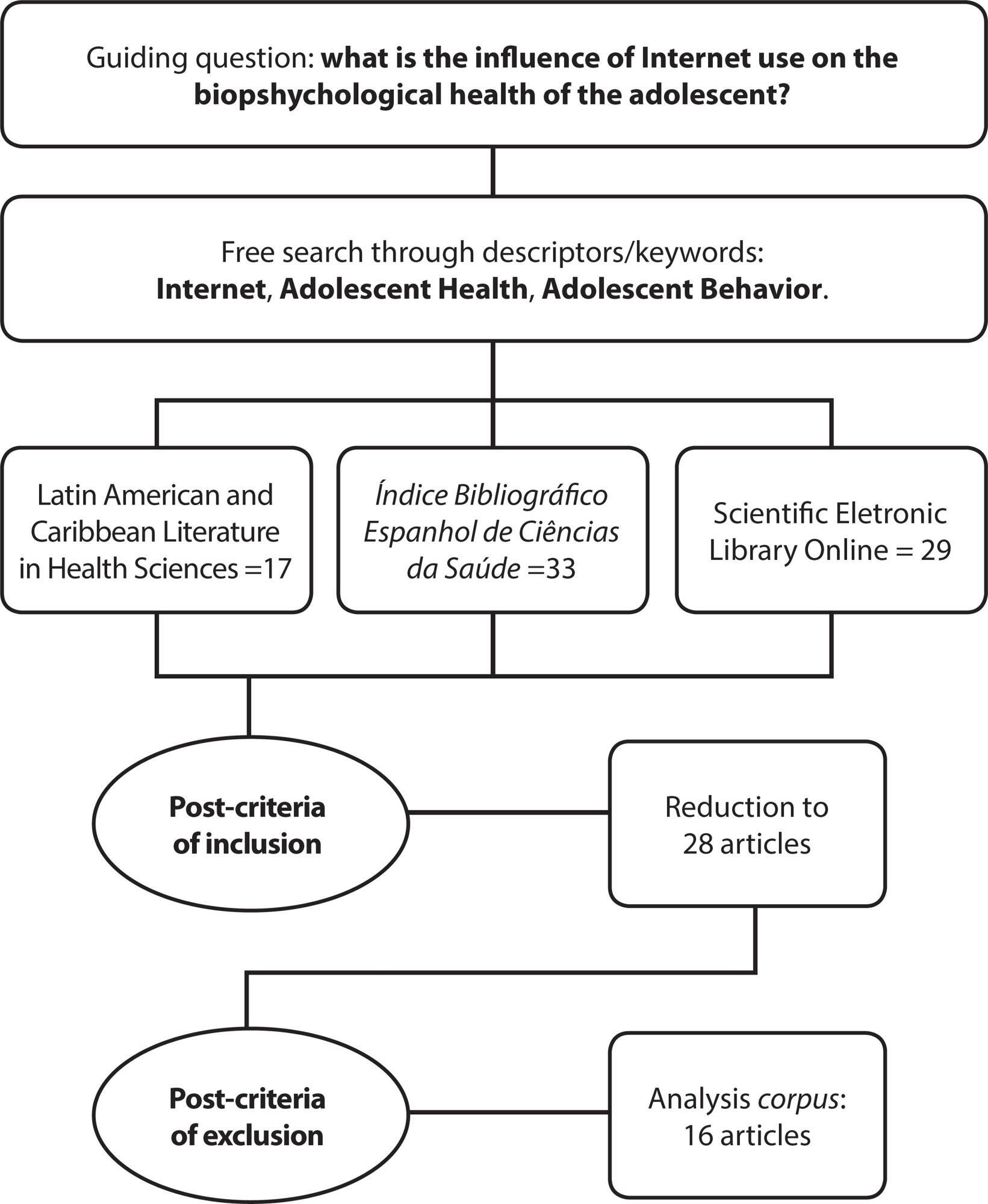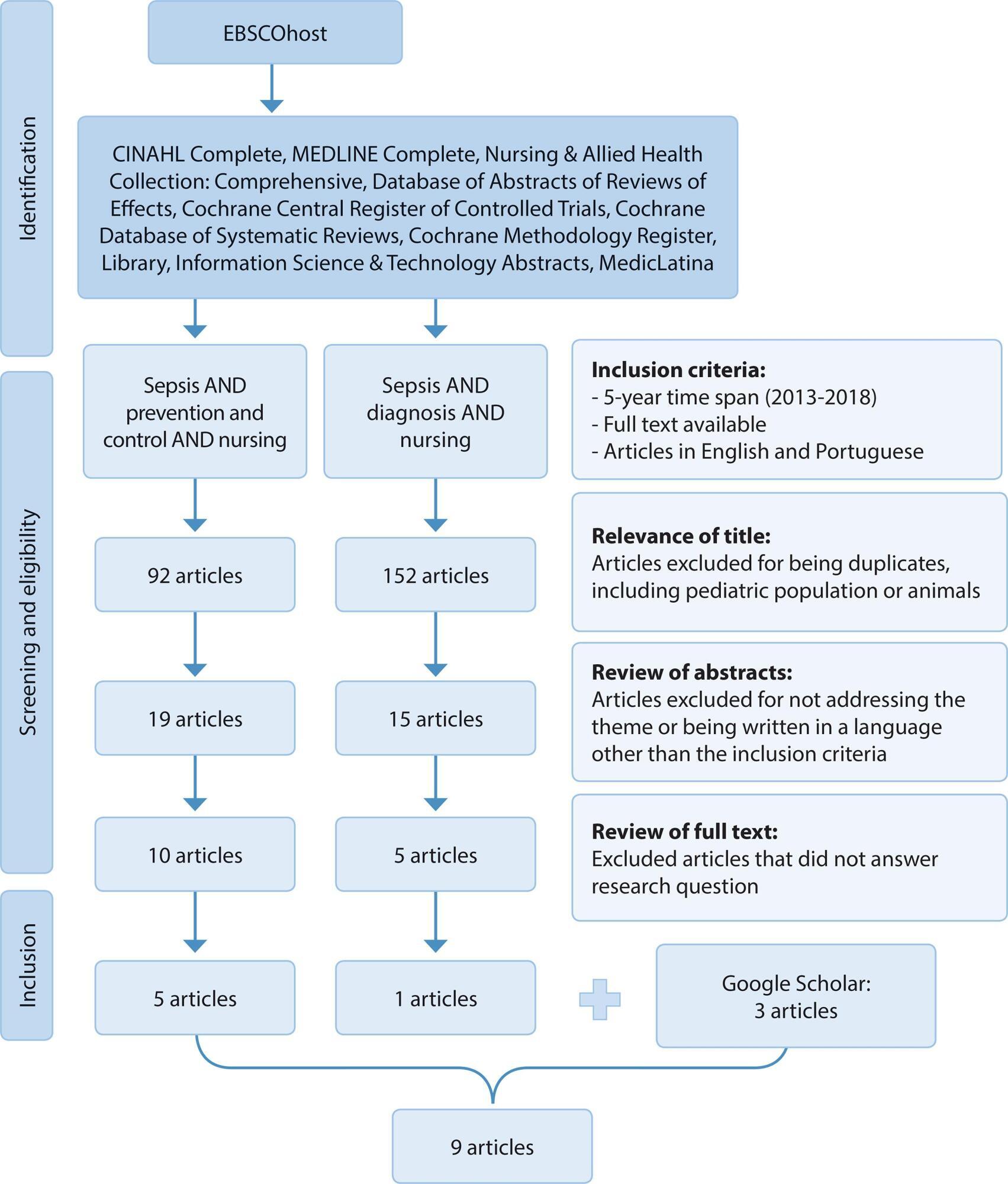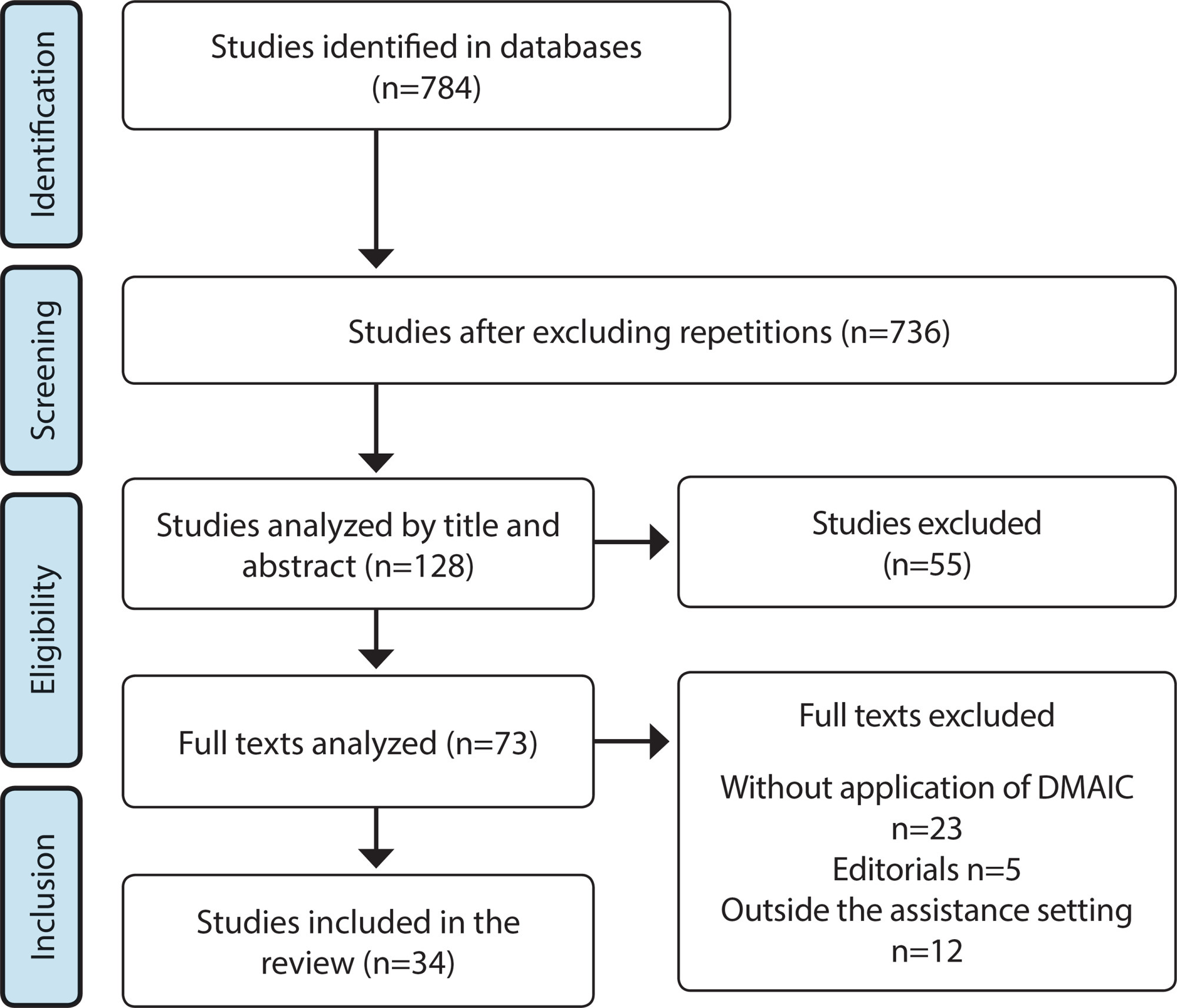-
01-01-2018
Needs in Mental Health and Research
Revista Brasileira de Enfermagem. 2018;71:2077-2078
Abstract
Needs in Mental Health and Research
Revista Brasileira de Enfermagem. 2018;71:2077-2078
DOI 10.1590/0034-7167-2018-0363
Views0Psychic suffering is a public health problem in the world because it is strongly related to the loss of functionality, and to the presence of drastic reflexes in personal life and in the social context. Psychic suffering presents as determinants not only the abilities of individuals to deal with thoughts, emotions, behaviors, interactions, but also […]See more -
01-01-2018
Necessidades em saúde mental e pesquisa
Revista Brasileira de Enfermagem. 2018;71:2077-2078
Abstract
Necessidades em saúde mental e pesquisa
Revista Brasileira de Enfermagem. 2018;71:2077-2078
DOI 10.1590/0034-7167-2018-0363
Views0O sofrimento psíquico é um problema de saúde pública no mundo pois está fortemente relacionado à perda de funcionalidade, à apresentação de reflexos drásticos na vida pessoal e no contexto social. Dessa forma, apresenta como determinantes não somente as habilidades dos indivíduos para lidar com pensamentos, emoções, comportamentos, interações, mas também aspectos relacionados à vida […]See more -
REFLECTION01-01-2018
Ethical competences for the development of nursing care
Revista Brasileira de Enfermagem. 2018;71:1810-1814
Abstract
REFLECTIONEthical competences for the development of nursing care
Revista Brasileira de Enfermagem. 2018;71:1810-1814
DOI 10.1590/0034-7167-2017-0539
Views0See moreABSTRACT
Objective:
To present an analysis of the nursing ethos based on the disciplinary foundations of nursing to propose a definition of ethical competences for nursing training.
Method:
The present proposal is a theoretical reflection, based on a literature review of the specialty, both nursing and ethics.
Results:
we suggest basing the ethical education of nursing students integrating transversally disciplinary, bioethical and civic ethical competences, considering certain educational dimensions that favor their development.
Final considerations:
We expect that the definitions of three competences of the moral scope of nursing, contribute to cross-cutting proposals that promote the values and principles of the profession.
-
01-01-2018
Competencias éticas para el desarrollo del cuidado en enfermería
Revista Brasileira de Enfermagem. 2018;71:1810-1814
Abstract
Competencias éticas para el desarrollo del cuidado en enfermería
Revista Brasileira de Enfermagem. 2018;71:1810-1814
DOI 10.1590/0034-7167-2017-0539
Views0See moreRESUMEN
Objetivo:
Presentar un análisis del êthos de enfermería en base a los fundamentos disciplinares de ésta, a fin de proponer una definición de competencias éticas para la formación en enfermería
Método:
La presente propuesta es una reflexión teórica, fundamentada en una revisión de literatura de la especialidad, tanto de enfermería como de la ética.
Resultados:
se sugiere basar la formación ética de estudiantes de enfermería integrando transversalmente competencias éticas disciplinares, bioéticas y cívicas, considerando determinadas dimensiones educativas que favorecen su desarrollo.
Consideraciones finales:
Se espera que las definiciones de tres competencias del ámbito moral de la enfermería, contribuyan a propuestas transversales que logren fomentar los valores y principios de la profesión.
-
REFLECTION01-01-2018
The professor’s body: discourses on subjectivity to reflect on nurses’ education
Revista Brasileira de Enfermagem. 2018;71:1805-1809
Abstract
REFLECTIONThe professor’s body: discourses on subjectivity to reflect on nurses’ education
Revista Brasileira de Enfermagem. 2018;71:1805-1809
DOI 10.1590/0034-7167-2017-0456
Views0See moreABSTRACT
Objective:
to reflect on the body of the nursing professor in the subjectivity discourse.
Method:
this is a reflective essay on the theoretical and practical reverberations of the nursing professor’s body based on the Deleuzoguattarian discourse.
Results:
in the theoretical framework, the body of the nursing professor was considered as a producer of subjectivities and understood without organs, surrounded by strengths, desires, and affections. In the practical framework, we discussed pedagogical strategies developed by professors, such as dramatic games, simulated scenes, presentation of the line of care and living portfolio, characterized by stimulating nursing students to value political, civic, creative, and supportive dimensions.
Conclusion:
based on the subjectivity discourses, the professor’s body was demystified as uniquely holder of knowledge, and all participants in the educational scenario were considered active protagonists of collective knowledge.
-
EXPERIENCE REPORT01-01-2018
Nursing students in the community: entrepreneurial strategy and proponent of changes
Revista Brasileira de Enfermagem. 2018;71:1799-1804
Abstract
EXPERIENCE REPORTNursing students in the community: entrepreneurial strategy and proponent of changes
Revista Brasileira de Enfermagem. 2018;71:1799-1804
DOI 10.1590/0034-7167-2017-0382
Views1See moreABSTRACT
Objective:
To report the insertion of the nursing students of the Franciscan University Center in the community through the project Adopting a Family, contributing to critical thinking within the Nursing academic production and its articulation to collective health.
Results:
In the professors’ evaluation, the activity represented an effective articulation and insertion of the university in the community; for the students, it allowed for spaces of construction, deconstruction and negotiation with the unknown and the uncertain; for the families, it enabled the feeling of being remembered and valued as human beings and citizens. Through the experiences had, the transformation of health practices goes through the emergence and valuation of new knowledge.
Final considerations:
The insertion of the university in the community is constituted by an entrepreneurial strategy that is proponent of changes, due to its more effective and resolute outreach of health issues proposed by the national health system.

-
EXPERIENCE REPORT01-01-2018
From theory to practice, operating the clinical simulation in Nursing teaching
Revista Brasileira de Enfermagem. 2018;71:1791-1798
Abstract
EXPERIENCE REPORTFrom theory to practice, operating the clinical simulation in Nursing teaching
Revista Brasileira de Enfermagem. 2018;71:1791-1798
DOI 10.1590/0034-7167-2017-0180
Views0See moreABSTRACT
Objective:
To report the experience of the operationalization of clinical simulation as a pedagogical strategy in a subject of an undergraduate course in Nursing.
Method:
Clinical simulation cycles were carried out following the steps of action research, such as: planning, action, observation and reflection, from March 2014 to July 2015 with 10 professors and 44 students from a Primary Care and Mental Health subject of an undergraduate course in Nursing.
Results:
Five cycles of clinical simulation were performed, at the end of each cycle modifications were suggested by students and professors and the operation was adjusted to meet the needs of the subject. The main points of change were: professor role, logistics, equipment, debriefing model and preparation of “simulated patients”.
Final considerations:
The clinical simulation is a possible method to be operationalized in undergraduate course in Nursing, needs pedagogical and logistic planning as well as, sensitization of professors and students.

-
EXPERIENCE REPORT01-01-2018
Clinical simulation to teach nursing care for wounded patients
Revista Brasileira de Enfermagem. 2018;71:1785-1790
Abstract
EXPERIENCE REPORTClinical simulation to teach nursing care for wounded patients
Revista Brasileira de Enfermagem. 2018;71:1785-1790
DOI 10.1590/0034-7167-2017-0170
Views0See moreABSTRACT
Objective:
to report the experience of constructing and applicating clinical simulation scenarios for the evaluation and treatment of wounds.
Method:
experience report on two simulation scenarios for nursing care of wounded patients applied to nursing undergraduates. We structured simulations based on the model from the National League for Nursing/Jeffries Simulation Framework. The scenarios were evaluated by the instrument Simulation Design Scale and the students by the experience with the simulation.
Results:
the scenarios reproduced nursing care situations with the application of role play and moulage, which allowed us to evaluate and discuss the wound treatment. Reflections on the debriefing were important for the teaching-learning process and association between theory and practice, these factors determined the satisfaction of students with the activity.
Conclusion:
using clinical simulation scenarios to teach students favored the clinical reasoning and decision-making in the evaluation and treatment of wounds.
-
ORIGINAL ARTICLE06-16-2021
Patient participation in care safety: Primary Health Care professionals’ perception
Revista Brasileira de Enfermagem. 2021;74(2):e20200773
Abstract
ORIGINAL ARTICLEPatient participation in care safety: Primary Health Care professionals’ perception
Revista Brasileira de Enfermagem. 2021;74(2):e20200773
DOI 10.1590/0034-7167-2020-0773
Views0See moreABSTRACT
Objectives:
to analyze health professionals’ perception about the meaning and practice of patient involvement in care safety in Primary Health Care.
Methods:
this is an exploratory, qualitative study, developed with 22 professionals in the Federal District, Brazil. A semi-structured interview was conducted between October and November/2018. Content analysis was carried out according to Bardin.
Results:
nurses, physicians, dentists, among others, participated. The following categories emerged: Meaning of patient involvement in care safety; Factors intervening in patient involvement in care safety; Strategies for patient involvement in care safety; Qualification for patient involvement in care safety.
Final Considerations:
the meaning of patient involvement for care safety was associated with co-responsibility and patient-centered care. Professionals’ practice revealed intervening factors and the use of involvement strategies. A gap was identified in training on patient involvement in care safety.
-
REVIEW03-30-2020
Internet influence on the biopsychosocial health of adolescents: an integratitive review
Revista Brasileira de Enfermagem. 2020;73(2):e20180766
Abstract
REVIEWInternet influence on the biopsychosocial health of adolescents: an integratitive review
Revista Brasileira de Enfermagem. 2020;73(2):e20180766
DOI 10.1590/0034-7167-2018-0766
Views0See moreABSTRACT
Objectives:
To identify scientific evidence on the influence of internet use on adolescents’ biopsychosocial health.
Methods:
Integrative review, with database search, using the descriptors “internet”, “adolescent health” and “adolescent behavior”. After applying the inclusion and exclusion criteria, 16 articles were selected.
Results:
Knowledge convergence produced for three main themes was demonstrated: “Internet exposure time and possible damages to adolescent health”; “Internet, adolescent and cyberbullying”; and “Internet as a source of information for adolescent health”.
Final considerations:
The network involves an intricate network of interactions, providing varied behaviors and attitudes that reflect on adolescent health. Therefore, it is important to articulate nursing actions with the school community and the family, in order to carry out health education.

-
REFLECTION07-10-2020
Psychosocial risks and the health of health workers: reflections on Brazilian labor reform
Revista Brasileira de Enfermagem. 2020;73:e20190092
Abstract
REFLECTIONPsychosocial risks and the health of health workers: reflections on Brazilian labor reform
Revista Brasileira de Enfermagem. 2020;73:e20190092
DOI 10.1590/0034-7167-2019-0092
Views0See moreABSTRACT
Objective:
to reflect on the psychosocial risks and their impacts on the health of health workers in light of the Brazilian economic context and Labor Reform.
Method:
reflective study on the Brazilian Labor Reform and its impacts on health of health workers.
Results:
although the changes observed in the labor sphere have contributed to improvements in health and safety policies for, these changes have also contributed to the emergence of new risks arising from work activities, including psychosocial risks, which affect all occupational categories.
Final considerations:
we understand that the Brazilian Labor Reform carried out in 2017 leads to the weakening of labor relations, increases workers’ exposure to risks in the workplace, increases the risk of illness, and opposes the global movement of international organizations aimed at the prevention of aggravation in workers’ health and also at preserving their health.
-
REVIEW06-17-2020
The role of the nurse in caring for the critical patient with sepsis
Revista Brasileira de Enfermagem. 2020;73(4):e20190031
Abstract
REVIEWThe role of the nurse in caring for the critical patient with sepsis
Revista Brasileira de Enfermagem. 2020;73(4):e20190031
DOI 10.1590/0034-7167-2019-0031
Views0See moreABSTRACT
Objectives:
to know the nursing interventions in the identification, prevention and control of sepsis in critical patients.
Methods:
integrative review of the literature, with two parallel researches using different MesH terms, using the EBSCO database and Google Scholar. Nine studies were included in the sample.
Results:
nursing interventions are centered on the creation/implementation of protocols for the early recognition of sepsis, the training of teams to ensure a safe and effective approach and the adoption of measures for infection prevention and control as a way to prevent sepsis.
Final Considerations:
the evidence shows that nurses are fundamental in the early identification, control and prevention of sepsis, preventing disease progression and contributing to decreased morbidity and mortality.

-
ORIGINAL ARTICLE05-15-2020
Configuration of power relations in physicians and nurses’ professional practices
Revista Brasileira de Enfermagem. 2020;73:e20180629
Abstract
ORIGINAL ARTICLEConfiguration of power relations in physicians and nurses’ professional practices
Revista Brasileira de Enfermagem. 2020;73:e20180629
DOI 10.1590/0034-7167-2018-0629
Views0See moreABSTRACT
Objective:
to analyze the configuration of power relations constituted in and by the knowledge and daily practices of physicians and nurses in an Intensive Care Unit (ICU).
Method:
qualitative study in which data were collected through interviews with physicians and nurses from an ICU of a hospital in Belo Horizonte, Minas Gerais. A semi-structured script was used. Data were analyzed through discourse analysis in a Foucaultian perspective.
Results:
three categories were developed – Professional Identity: self-recognition in the profession; Discipline: individualizing attitudes or collective need?; and Circularity of knowledge and power in the constitution of daily practices.
Final considerations:
the identity, discipline and circulation of power are connected in a continuous movement of subjectivation of the subject, which, in turn, uses discourse as a persuasion strategy to modify the position taken over in different situations thereby causing the circulation of power.
-
ORIGINAL ARTICLE02-10-2020
Theater of the Oppressed and bullying: nursing performance in school adolescent health
Revista Brasileira de Enfermagem. 2020;73(1):e20170910
Abstract
ORIGINAL ARTICLETheater of the Oppressed and bullying: nursing performance in school adolescent health
Revista Brasileira de Enfermagem. 2020;73(1):e20170910
DOI 10.1590/0034-7167-2017-0910
Views0See moreABSTRACT
Objective:
to assess the effects of an intervention based on the Theater of the Oppressed in reducing school bullying.
Method:
a quasi-experimental study with 232 first-year high school students from two public schools in the city of Cuiabá, Mato Grosso State, Brazil. An intervention was performed with the Theater of the Oppressed, a theatrical methodology created by Augusto Boal and inspired by Paulo Freire’s “Pedagogy of the Oppressed”, in which one school composed the intervention group, and another school, the comparison group. Both groups were assessed for involvement in bullying situations before and after intervention. For data analysis, Poisson Regression models with random effect were used.
Results:
intervention group presented a significant decrease in direct victimization (physical and verbal aggression).
Conclusion:
the Theater of the Oppressed represents an important strategy in reducing bullying victimization among school adolescents.
-
ORIGINAL ARTICLE02-10-2020
Common Mental Disorders and Contemporary Factors: 1982 Birth Cohort
Revista Brasileira de Enfermagem. 2020;73(1):e20180162
Abstract
ORIGINAL ARTICLECommon Mental Disorders and Contemporary Factors: 1982 Birth Cohort
Revista Brasileira de Enfermagem. 2020;73(1):e20180162
DOI 10.1590/0034-7167-2018-0162
Views0See moreABSTRACT
Objective:
To describe the association between common mental disorders and socio-demographic variables, smoking habits and stressful events among the 30-year-old members of a 1982 cohort.
Method:
Mental disorder was analyzed by the Self-Reporting Questionnaire (SRQ-20). Poisson regression was used to analyze the unadjusted and adjusted associations.
Results:
Low level of education and stressful events increased the prevalence of mental disorders for both genders. Lower income for women and unemployment for men also remained associated with CMD.
Conclusion:
It was possible to describe the association between contemporary factors and mental disorders in a young population, to which prevention and control measures, through public policies proposed to the areas of Primary Care, Mental Health and Education, can represent a better quality of life and health.
-
REVIEW12-21-2020
Lean Six Sigma methodology application in health care settings: an integrative review
Revista Brasileira de Enfermagem. 2020;73:e20190861
Abstract
REVIEWLean Six Sigma methodology application in health care settings: an integrative review
Revista Brasileira de Enfermagem. 2020;73:e20190861
DOI 10.1590/0034-7167-2019-0861
Views0See moreABSTRACT
Objective:
to analyze the scientific production on the results of Lean Six Sigma methodology in health care institutions.
Methods:
an integrative literature review, with the following question: what are the results in health institutions using Lean Six Sigma and Six Sigma methodology? The search was carried out at MEDLINE, LILACS, BDENF, CINAHL, Web of Science, and Scopus, with no time frame.
Results:
thirty-four articles were included, published between 2005 and 2019, of which 52.9% came from the United States of America. The most commonly found improvements were in hospital institutions and from the perspective of customers and internal processes.
Conclusion:
using Lean Six Sigma methodology proved to be effective in the different health care settings, evidencing a gap in its application regarding people engagement and training.

Search
Search in:
Nuvem de Tags
Adolescente (85) Atenção Primária à Saúde (239) COVID-19 (91) Criança (91) Cuidados de Enfermagem (269) Educação em Enfermagem (151) Educação em Saúde (139) Enfermagem (930) Enfermagem Pediátrica (86) Estudantes de Enfermagem (77) Estudos de Validação (131) Família (87) Idoso (208) Promoção da Saúde (99) Qualidade de Vida (104) Saúde do Trabalhador (86) Saúde Mental (145) Saúde Pública (82) Segurança do Paciente (150) Tecnologia Educacional (100)



